As well as being immersed in political intrigue, Cecil was a dab hand at entertaining, he welcomed both Elizabeth and James to his home. He had an eye for the arts, he liked collecting paintings and even swapped one of his homes for one of the kings.
|
Robert Cecil, the first Earl of Salisbury, was small in stature. He suffered from scoliosis and was physically frail. Following in the footsteps of his father he devoted himself to the service of the crown, yet, he is described as an 'archetypal, shadowy, creepy man' operating quietly, but dangerously in the shadows. Baptised at St Clement Danes Church in London on the 6th June 1563, he was the only son of William Cecil and his second wife Mildred Cook. He entered parliament in 1534, and very quickly established himself, but was not as popular, but would go on to be a successful politician and an administrator who took over his father's role in government when he became too ill to do the job himself. In 1596, Cecil became Elizabeth's secretary and out-maneuvered her favourite Robert Devereux in what history calls the Essex's Rebellion. Cecil successfully quashed the rebellion and the Earl of Essex along with it, thus eliminating any rivals to his position as the queen's minister. He would be responsible for the smooth transfer of the crown to James VI of Scotland on Elizabeth's death in 1603. On the succession of the Scottish king, as James I, to the English throne, he temporarily lost influence as James had been a supporter of Essex, but the king came to trust and rely on Cecil, eventually calling him his 'little beagle'. In 1605, Cecil quashed yet another uprising - the Gunpower Plot, although it is thought that it was Cecil who instigated it, with the aim to convince James that he should not trust those of the Catholic persuasion. As well as being immersed in political intrigue, Cecil was a dab hand at entertaining, he welcomed both Elizabeth and James to his home. He had an eye for the arts, he liked collecting paintings and even swapped one of his homes for one of the kings. However, the burden of work eventually wore him down when in the spring of 1612, he complained of being "in great pain and even greater wretchedness of mind" and following a trip to take the waters in the town of Bath, he died of cancer on the 24th of May in 16 at Marlborough in Wiltshire. He was not yet forty-nine. Cecil was buried in St Etheldreda's Church, Hatfield in Herefordshire, and lays beneath an elaborate tomb. It is highly likely that Shakespeare was referring to Robert Cecil, as the unpopular hunchback when he was writing his play Richard III, and this is captured very well in the 2011 film Anonymous where he is portrayed as a small dark creature, underhand, and skulking about the Elizabethan corridors.
0 Comments
Macbeth or mac Bethad mac Findláich was a Scottish warrior, a clan leader from Moray in the north of Scotland, the son, as his name states, of Findlaech of Moray. It was on this day in 1057 he was killed by the son of Duncan I, the very man he had killed in battle on the 14th August in 1040 - fourteen years and one day earlier. There are no images of Macbeth, however, in the Prophecy of Berchan, an ancient Irish poem on the history of early Scotland, Macbeth is called "the red, tall, golden-haired one" The real Macbeth is overshadowed by the Macbeth of Shakespeare's play which is a tale of ambition, a desire cleverly planted in Macbeth's mind by the 'weird sisters' who we know as the three witches.
As mentioned in a blog on the death of King Duncan of Scotland Shakespeare source is the Chronicles of Raphael Holinshed, to which he is known to have referred for many of his other historical dramas. meanderingthroughtime.weebly.com/history-blog/king-duncan-i-and-macbeth Robert Wilson was an English playwright and actor during the reign of Elizabeth I. He is credited with at least sixteen plays, on most, he collaborated with others, such as Michael Drayton, Anthony Munday and one Richard Hathwaye (not considered to be any relative of Shakespeare's wife Ann.) A number of these plays were not completed including Henry Richmond (Part 2) and Owen Tudor, what a shame it would have been a wonderful opportunity to read about these two men, who played such an important part in the Wars of the Roses, from the pen of another playwright. However, parts 1 and 2 of Wilson's play The True and Honourable History of Sir John Oldcastle, was completed. In this play it's protagonist was a soldier who was executed for heresy and treason, being hanged and burnt, in 1417. Oldcastle's character, or part of his character, we have heard of before, Oldcastle was portrayed in Shakespeare's Henry V plays under the guise of Sir John Falstaff. Interestingly, the play is thought to have been commissioned to counter Oldcastle's/Falstaff's reputation in Shakespeare's play.
Robert Wilson was buried at St. Giles in Cripplegate on November 20th, 1600. Catherine of Valois, the beautiful and virtuous Kate from Shakespeare's Henry V is defined by the events of her later life, her marriage to Henry V, a suspected relationship with Edmund Beaufort, her affair with Owen Tudor and the ill-treatment of her body by diarist Samuel Pepys. However, little is known of her childhood and early life. Catherine of Valois was born in Paris on the 27th October in 1401. She was the ninth child and the fifth daughter of King Charles VI of France and his queen, Isabella of Bavaria. Cathrine was born while France was in turmoil - the beginnings of a power struggle at home and the continuing conflict with the enemy over the sea, the English. It is thought that Catherine had a troubled childhood and indeed she may have witnessed at first hand her father's bouts of mental illness and her mother struggling to come to terms with the situation. History tells us of the poverty ridden French court, but it doesn't tell us how it all affected her, and historians differ in their view of Catherine's upbringing, some suggest that her mother was cold and cruel and openly flaunted her lovers about court, while other say that she was kind, generous and very close to all her children. By the time Catherine was seven years old, English king Henry IV was looking for peace with France, he considered that a match between his son and a French princess would bring this about and therefore the subject was discussed on and off over the following years, eventually though Catherine was betrothed to the future Henry V. Shakespeare writes of their meeting "You have witchcraft in your lips, Kate: there is more eloquence in a sugar touch of them than in the tongues of the French council, and they should sooner persuade Harry of England than a general petition of monarchs." These sweet and seductive words to Catherine would succeed where seventy years of battling did not. Henry and Catherine were betrothed on 21st May 1420, they were married within a few weeks and Catherine would be a widow just over fifteen months later. Catherine son from her marriage to Henry V was Henry VI, his weak rule would bring about the Wars of the Roses and from Catherine's relationship with the son of a Welsh publican the mighty Tudor dynasty sprang.
Christopher Marlowe was an English playwright and poet, he was born in Canterbury to shoemaker John Marlowe and his wife Catherine, he was baptised on this day in 1564. Marlowe's life, his work and his death are all steeped in mystery, rumour and myth. So was Marlowe really William Shakespeare? Did he write Shakespeare's plays? Was he a spy? Was he murdered? Of course he wasn't William Shakespeare, but they were born in the same year. However ... The theory that Marlowe wrote parts of Shakespeare's plays may be true. Henry VI, Parts One, Two and Three are among as many as seventeen plays that are thought to contain the works of other playwrights including Marlowe. Marlowe attended the King’s School in Canterbury after which he went to Corpus Christi College in Cambridge. His frequent and lengthy absences from university and a letter that remarked on his “good service” to Elizabeth I on “matters touching the benefit of his country” play their part in the theory he was spying for Francis Walsingham. So what of the rumours of Marlow's demise? These say that he was stabbed to death, or killed in a drunken fight. The reasons for his death have been speculated upon too - He was murdered by a rival in love or Elizabeth put out a contract on him. My favourite of his plays is Dr Faustus a tale about a man who sells his soul for twenty years of knowledge and power. The term “Faustian bargain” is in reference to any deal made for a short-term gain that comes with a great cost.
Fascinating stuff don't you think? There is more here www.marlowe-society.org/christopher-marlowe/life/death-in-deptford/ Died at the Battle of Castillon this day in 1453 John Talbot, said to be the best general Henry VI had. O, no; wherein Lord Talbot was o'erthrown:
The circumstance I'll tell you more at large. The tenth of August last this dreadful lord, Retiring from the siege of Orleans, Having full scarce six thousand in his troop. By three and twenty thousand of the French Was round encompassed and set upon…. More than three hours the fight continued; Where valiant Talbot above human thought Enacted wonders with his sword and lance: Hundreds he sent to hell, and none durst stand him; Here, there, and every where, enraged he flew: The French exclaim’d, the devil was in arms; All the whole army stood agazed on him: His soldiers spying his undaunted spirit A Talbot! a Talbot! cried out amain And rush’d into the bowels of the battle. Henry VI Part One: Act 1, Scene 1 In Shakespeare's play John Talbot is seen as the last of the medieval heroes, a daring soldier loyal to his king while most of the English nobles are fighting among themselves. Laurence Olivier was born on the 22nd May 1907, for me he is best remembered for his portrayal of King Richard III and the haunted and incredibly handsome Maxim de Winter in Daphne de Maurier's Rebecca. Olivier was brilliant in the role of Shakespeare's Richard, the "Winter of discontent" scene is a fine example of this man's talents. Olivier doesn't ignore the camera but uses it as a tool to talk to us directly, making us believe that we are actually in the same room as the fifteenth century king. The close ups are particularly unnerving, resulting in the audiences intimidation being turned to hate. I have never been able to work out whether Olivier took the film seriously. He is known for his dry humour and his big personality, I cannot make out if he is being funny. The scene at the window for instance he uses his eyebrows to great effect is a prime example or is he just playing Richard as a ludicrous villain as Shakespeare intended? A review of this film when it was first released stated: "this is a superb and bold achievement, most honourable to Shakespeare and to the actor-producer-director, something of a cinematographic miracle." This is true, the only one who loses here is Richard himself. https://www.youtube.com/watch?v=cDxnXgYPnKg Laurence Olivier is one of my favourite actors (Peter O'Toole in the Lion in Winter ranks highly too.) His stage performances are legendary, he was superb as Heathcliffe in Withering Heights and not a little bit naughty in his private life if his letters to Vivian Leigh are anything to go by.
"There’s rosemary, that’s for remembrance; pray, love, remember; and there is pansies, that’s for thoughts.There’s fennel for you, and columbines; there’s rue for you, and here’s some for me; we may call it herb of grace o’ Sundays. O, you must wear your rue with a difference. There’s a daisy. I would give you some violets" Hamlet, Act IV, Scene 5 When Ophelia loses her mind, she begins handing out flowers to everyone around her and talks about the symbolic meaning of those particular flowers. Among them there is Rosemary, this herb has been linked to memory for hundreds of years, but its also symbol of love and remembrance, and is frequently used at at both weddings and funerals. It was customary at one time, for the bride and groom to plant rosemary near the door of their new home on their wedding day. However, the old saying "where rosemary flourished, the woman ruled" may have seen more than a few husbands uprooting the plant, after all, it was he who was wearing the trousers, wasn't it? Rycharde Banckes, a 16th century herbalist in his book Banckes' Herbal published in 1525, suggested that rosemary
should be "boyle them in fayre water and drinke that water for it is much worthe against all manner of evils in the body." Is there something in what Banckes suggests? Maybe rosemary could be used to help those suffering with Alzheimer's? At long last today's medical practitioners are picking up on the benefits of herbs. Northumbria University is running an experiment to test whether essential oil, extracted from Rosemary, could benefit memory. They recruited sixty older volunteers to test the effects of, not only rosemary oil, but also lavender oil. They placed these volunteers in rooms infused with either rosemary essential oil, lavender essential oil or in one with no aroma. At the start, objects were hidden around the room in places that had to be remembered at end of the test. The volunteers then were distracted with assorted puzzles and then they were asked what they remembered. The results were astonishing. The scientists running the test said "volunteers in the room with the rosemary infusion did statistically significantly better than those in the control room but lavender caused a significant decrease in performance." Sounds promising. Maybe I will place an extra sprig of Rosemary on the top of my lamb joint in the hope that I won't forget how many people are coming for dinner. It has taken me a while but I am now able to talk about William Shakespeare without harping on about the fact that he is solely responsible for Richard III's bad press. I can now read and enjoy his plays for what their are, just plays. Shakespeare in his day was a poet with a living to make he certainly wasn't considered a historian by the people around him he was simply writing what Elizabethan theatre goers wanted to hear and see. The Elizabethans liked their "villains to be villainous," the audience had a "constant demand for a really bloody gangster play just as today there is a similar demand for a sadistic gangster film. Shakespeare's Richard is nothing but a royal gangster who had been presented to him ready made by Tudor chroniclers" said V E Lamb writing in 1959 Shakespeare wasn't concerned with historical accuracies, he just made the facts fit his plays. In The Betrayal of Richard III it is suggested that it was of no consequence to Shakespeare that he presents Richard as a monster, a grown man who was "reveling in the bloodshed at the Battle of Towton" when in fact he was an eight year old exiled in Utrecht, or that he makes Margaret of Anjou wander around the Palace of Westminster in 1483 foretelling Richards downfall when she actually had been in France since 1475. None of these were actual facts, Shakespeare simply used what he knew to make his plays more exciting. After all we have seen it done today, you have only got to watch any television series or film to see that. Shakespeare portrayed Richard III as the villain his public loved to hate, a murderous, lying, ruthless hunchbacked king. I read recently that the English take their religion from Milton and their history from Shakespeare how true is that. Not only have I fallen into that trap, but many accredited historians have done the same such as James Gairdner, a British historian who studied the early Tudor period relating to Richard III, Henry VII and Henry VIII. As an introduction to his work entitled Lancaster and York he writes "For the period of English history treated in this volume we are fortunate in possessing an unrivalled interpreter in our great dramatic poet Shakespeare. A regular sequence of historical plays exhibits to us not only the general character of each successive reign but nearly the whole chain of leading events from the days of Richard II to the death of Richard III at Bosworth. Following the guidance of such a master mind we realise for ourselves the men and actions of the period in a way we cannot do in any other epoch" There are many of us who are in someway to blame for Richard III being portrayed for over 500 years as a wife poisoning, niece lusting, nephew murdering tyrant. The Tudor usurpers who needed to blacken his name so that they could hold onto his crown, historians like Gairdner for perpetuating the lie and the likes of me, only a few years ago, for not thinking for myself. I should have read and listened to all points of view before making my mind up, but I see now that we cannot wholly blame William Shakespeare for Richard's undoing.
George Fredrick Cooke was a nineteenth-century English actor who in 1801 portrayed Richard III in the London theatre. Of Cooke's performance, theatergoers were said to have come away with the idea that Richard III was 'a very wicked man, and kills little children in their beds, with something like the pleasure which the giants and ogres in children’s books are represented to have taken in that practice' Charles Lamb, a noted English essayist and writer thought much on this point, eventually writing in his 1811 essay "On the Tragedies of Shakespeare Considered with Reference to their Fitness for Stage Representation" the following.
"Do we feel anything like disgust, as we do at that butcher-like representation of him that passes for him on the stage? A horror at his crimes blends with the effect which we feel, but how is it qualified, how is it carried off, by the rich intellect which he displays, his resources, his wit, his buoyant spirits, his vast knowledge and insight into characters, the poetry of his part—not an atom of all which is made perceivable in Mr. C.’s way of acting it. Nothing but his crimes, his actions, is visible; they are prominent and staring; the murderer stands out, but where is the lofty genius, the man of vast capacity, the profound, the witty the accomplished Richard?" I like to take from Lamb's writings some sort of support for the real Richard III, the Richard III I have come to know, but it is more than likely that Lamb writes in defence of Shakespeare's plays themselves for he argues that Shakespeare should be 'read, rather than performed, in order to protect Shakespeare from butchering by mass commercial performances.' Is he right? |
Archives
February 2024
Categories
All
After ten years in the workplace I became a mother to three very beautiful daughters, I was fortunate enough to have been able to stay at home and spend my time with them as they grew into the young women they are now. I am still in the position of being able to be at home and pursue all the interests I have previously mentioned. We live in a beautiful Victorian spa town with wooded walks for the dog, lovely shops and a host of lovely people, what more could I ask for.
All works © Andrea Povey 2014. Please do not reproduce without the expressed written consent of Andrea Povey. |
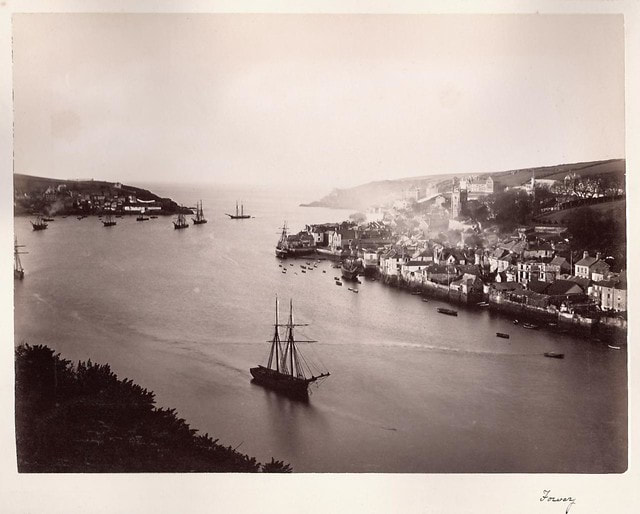
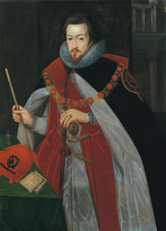
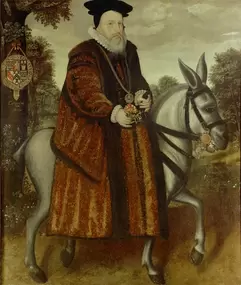
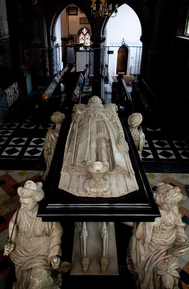
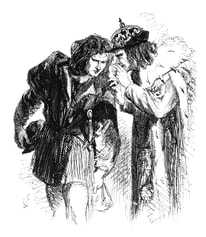
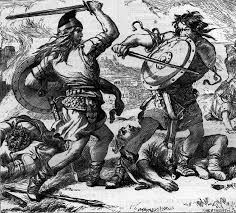
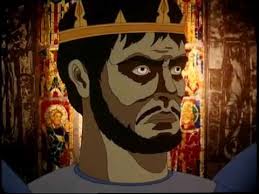
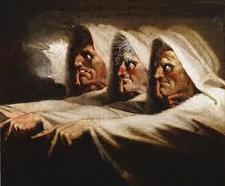

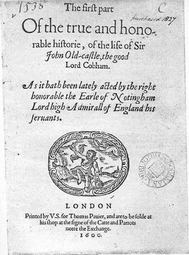
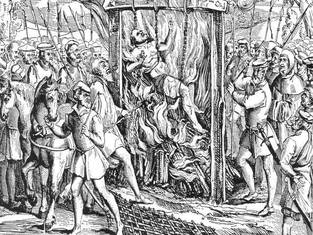
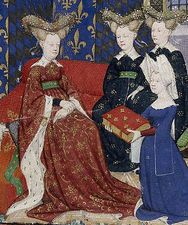
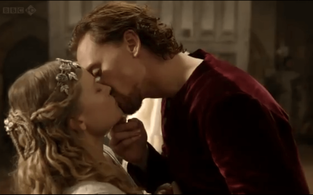
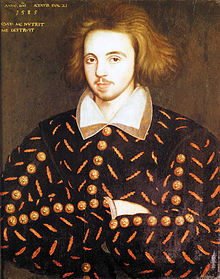
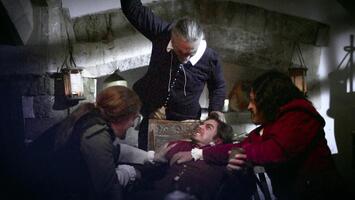
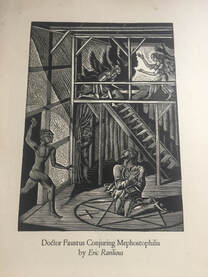
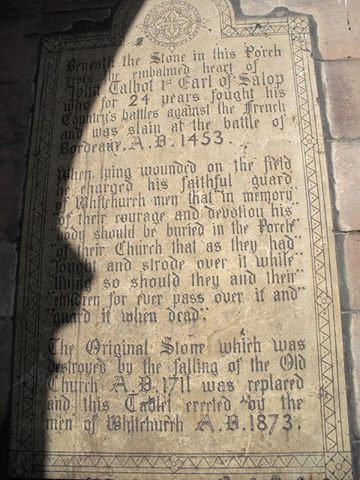
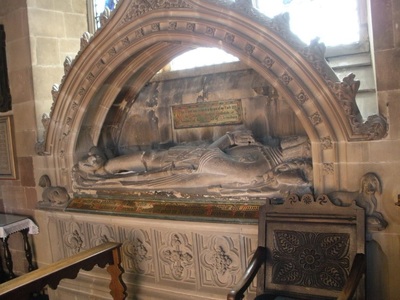

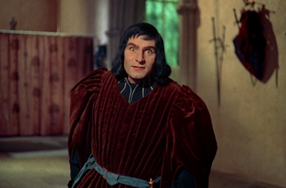
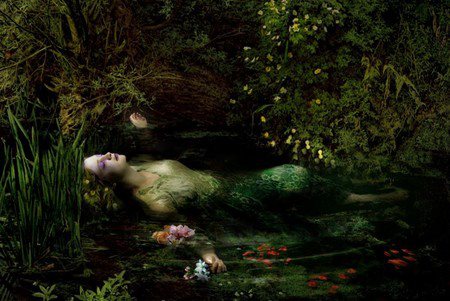


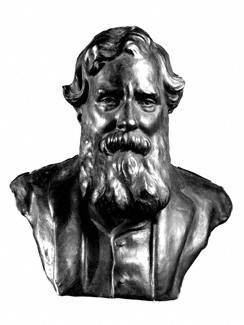
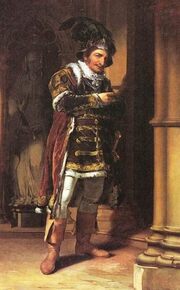

 RSS Feed
RSS Feed
